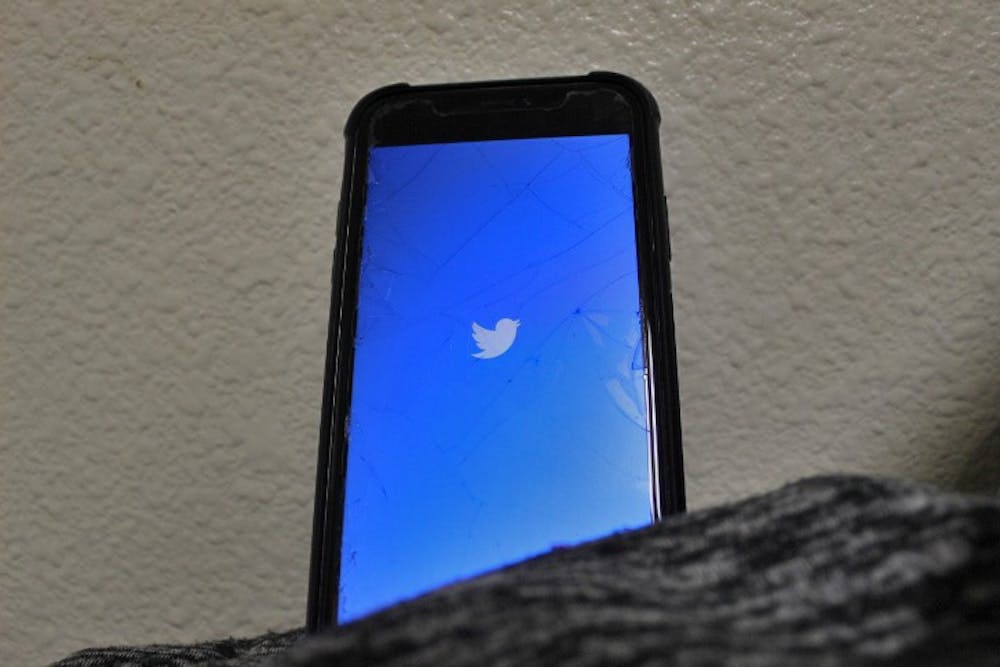Losers, rejoice — in a move sure to be celebrated by the worst men you know, Elon Musk completed his long-threatened acquisition of the social media platform Twitter on Oct. 27, bringing with it changes that have prompted many users and staff members to finally call it quits. Verification overhaul, content moderation changes and more are all on the table and have already altered user experience nearly beyond repair. With Twitter going through rapid change, now is the time to leave it behind for good and move on to greener, less awful pastures.
Founded in 2006, Twitter has played a key role in forming the language and communication of the internet age. On top of journalists, politicians and business leaders using the platform to communicate directly with their audiences (for better or for worse), Twitter also provided a medium through which much of internet culture and humor would be derived in the years to follow. As a result, Twitter has irrevocably altered our informational landscape, and if it falls out of use, the cultural effect will far outweigh simple replacement.
With influence inevitably comes unwieldy social power; for a private entity, Twitter’s influence in the public sphere is terrifying. This power can have positive outcomes, such as the stock price of insulin gouger Eli Lily dropping after a joke from a fake verified account. But just as it can be used to positive ends, it can be used for evil as well, such as spreading disinformation, conspiracy theories and slander.
Like other social media platforms, Twitter often becomes a platform for bullying and dehumanizing strangers. Though I don’t think adults need to be protected from one another as much as some others believe, Twitter’s tendency to have an often maligned “main character of the day” creates an environment of harsh judgment and anger. Though this negativity is human nature, it’s magnified on Twitter, where the volume of posts suggests protection through anonymity.
I won’t begin to argue how much of a time-sink Twitter and other social media platforms are; that much is evident by the so-called “infinite scroll,” which aims to retain your attention for longer and longer chunks of time. Twitter’s time-wasting potential, though, is far greater than that of its closest competition: say, Instagram.
Being primarily text-focused with numerous multimedia options and having a primary feed built around both original and retweeted content ensures not only that you’re seeing things you mostly want to see, but also that there’s always something new for you. Ultimately, on your Instagram feed, you’re getting one primary type of content from your following — and significantly less of it per day — than Twitter.
As a result, any replacement for Twitter will fall short of capturing the exact experience. Mass migration to similar platforms is possible (see Myspace and Facebook), but it’s unlikely with the audience Twitter has built; if one mutual follower goes to Mastadon and another to Gab, how do you decide which you use? Even splitting your attention makes the experience inherently different; it becomes less about forming a feed and more about giving your attention to specific individuals, a la Instagram or Facebook.
This isn’t to say that leaving Twitter would automatically turn us productive, or even that such a change would be necessary — if we all left the app and picked up woodworking, it would be miraculous. What I am saying is that leaving the app would diversify our time and help undo the damage social media has done to our culture; even wasting our time in other ways could be better than wasting our time in the cesspool of negativity that is Twitter.
Now, if leaving Twitter was easy, it would’ve been abandoned years ago. My own attempts at deleting the app have left me feeling out of the loop and, in a strange way, like I was missing out on the culture. Designed to be addictive, it’s a hard thing to cut cold turkey. But with Musk’s acquisition and negative changes to the website, it’s getting easier and easier — before we get used to Musk’s rule and accept it with total submission, now is the time to leave and never look back.
Spenser Willden is the culture editor at the Daily Lobo. He can be reached at culture@dailylobo.com or on Twitter @DailyLobo
Get content from The Daily Lobo delivered to your inbox






